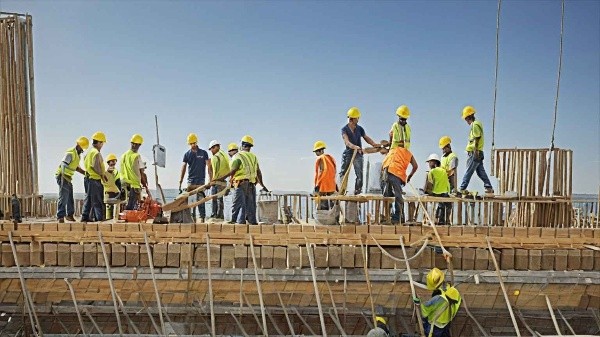Iran’s Plan to Strike Back Against the U.S.
Iran’s Military Preparations Following U.S. Attacks
Loading...

The country is launching a second recruitment drive after 10,349 construction workers were selected in a previous phase
Introduction
In a significant move to address its labor shortages, Israel has launched a new recruitment drive aimed at hiring 10,000 Indian construction workers. This initiative follows a previous successful phase where over 10,000 workers were selected, highlighting the ongoing demand for labor in the construction sector amidst the backdrop of the ongoing conflict with Palestine.
Background of the Recruitment Drive
The urgency for labor in Israel has escalated due to the suspension of work visas for most Palestinian workers after the tragic events of October 7, 2023, when a Hamas attack led to a prolonged conflict with the militant group based in Gaza. This situation has left a considerable gap in the workforce, particularly in construction, prompting the Israeli government to seek foreign labor solutions.
In May 2023, a bilateral agreement between India and Israel was established, allowing for the recruitment of up to 42,000 Indian workers in various sectors, including construction and nursing. The first phase of this initiative saw 10,349 construction workers selected from a pool of 16,000 applicants, primarily from the Indian states of Uttar Pradesh, Haryana, and Telangana.
Focus of the New Recruitment Drive
The latest recruitment effort is specifically targeting four job roles: framework, iron bending, plastering, and ceramic tiling. The recruitment is currently centered in Pune, Maharashtra, as announced by Devendra Fadnavis, the state's deputy chief minister. This targeted approach aims to streamline the hiring process and ensure that the specific labor needs of the Israeli construction industry are met effectively.
Economic Incentives for Indian Workers
One of the key attractions for Indian workers is the substantial wage difference. While construction workers in India typically earn between $150 and $300 per month, Israel is offering salaries starting at $1,600 per month. This significant increase in earnings is a major incentive for many workers seeking better opportunities abroad.
The Israeli embassy in India has expressed satisfaction with the performance of the Indian workforce already in the country, noting that reports indicate a high level of satisfaction among the workers regarding their working conditions and salaries. This positive feedback is likely to encourage more Indian workers to consider employment opportunities in Israel.
Additional Recruitment Plans
In addition to construction workers, Israel is also looking to recruit 5,000 certified caregivers from India. As of February 2023, there were approximately 18,000 Indians in Israel, primarily working as caregivers for elderly citizens, along with some engaged in diamond trading, IT professions, and academic pursuits.
The recruitment of caregivers is particularly crucial as Israel's aging population continues to grow, increasing the demand for skilled professionals in the caregiving sector. The emphasis on certified caregivers underscores Israel's commitment to ensuring quality care for its elderly population.
Conclusion
Israel's ongoing recruitment of Indian laborers reflects a strategic response to its labor shortages exacerbated by geopolitical tensions. With attractive wages and positive working conditions, this initiative not only addresses immediate labor needs but also opens up new avenues for Indian workers seeking better livelihoods abroad. As the situation evolves, the collaboration between India and Israel in the labor sector is likely to strengthen, benefiting both nations economically and socially.
Editor
Iran’s Military Preparations Following U.S. Attacks
Troops remain in five strategic locations, raising fears of renewed tensions and long-term occupation.
Opposition forces have taken control of the capital after a significant offensive. Here is how it unravelled.
